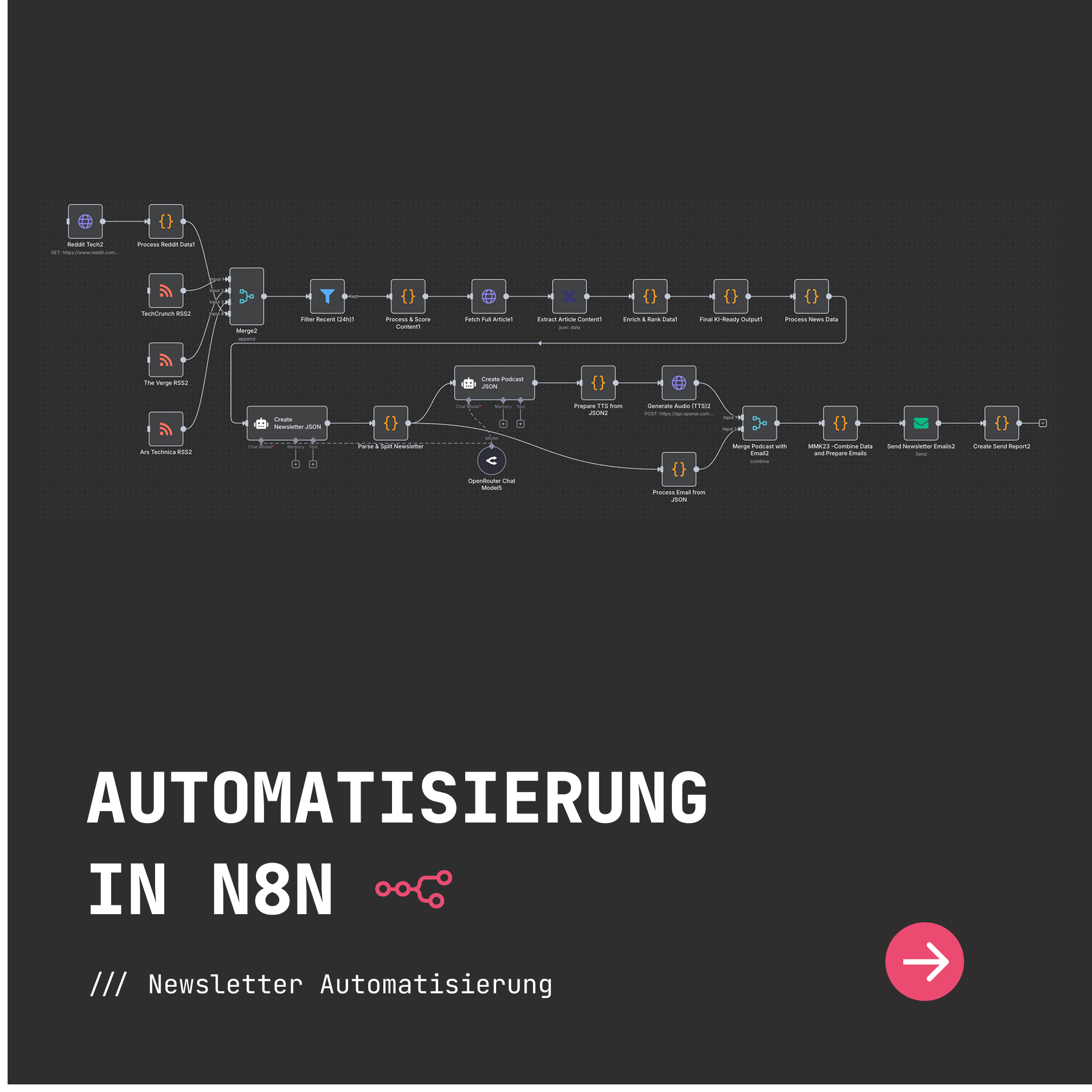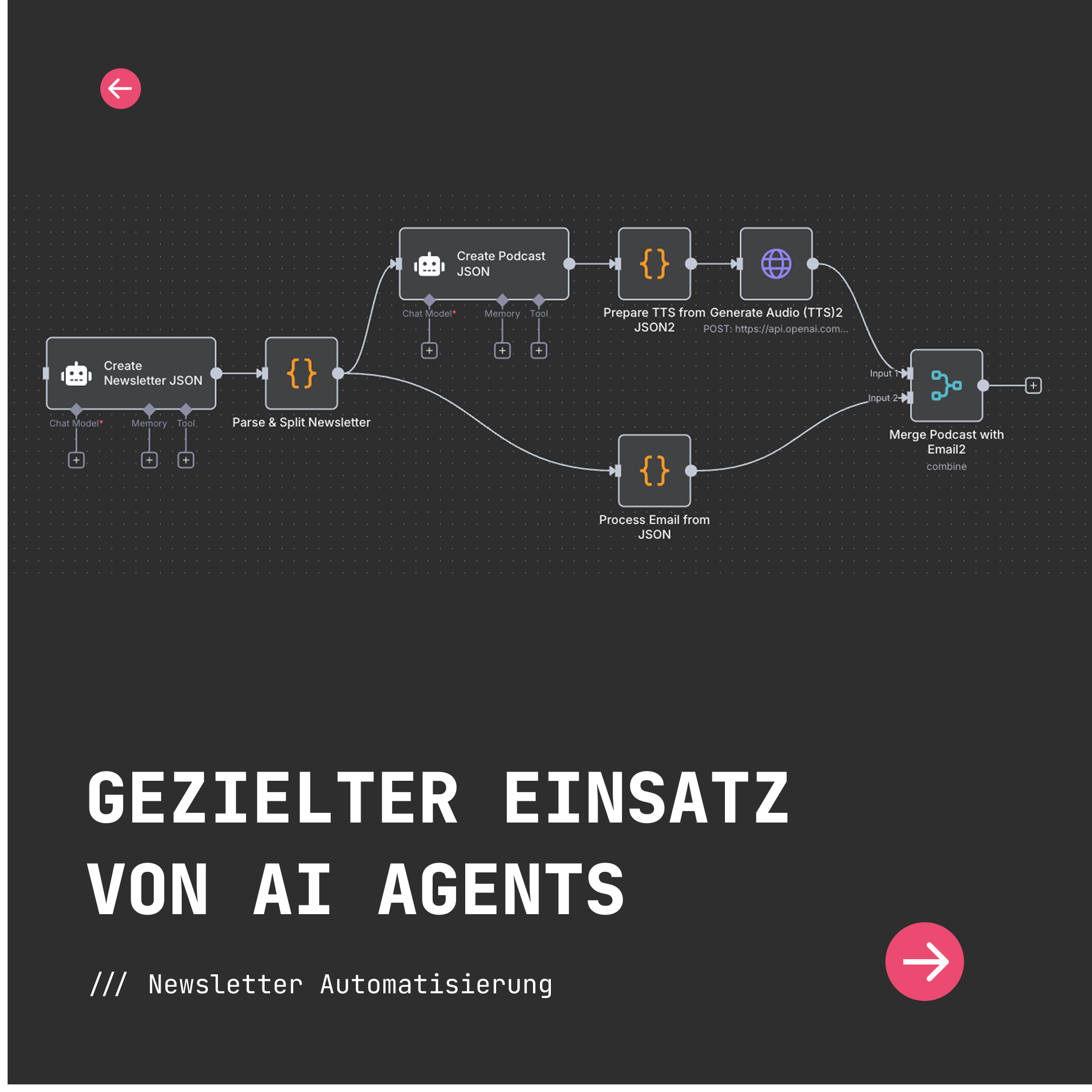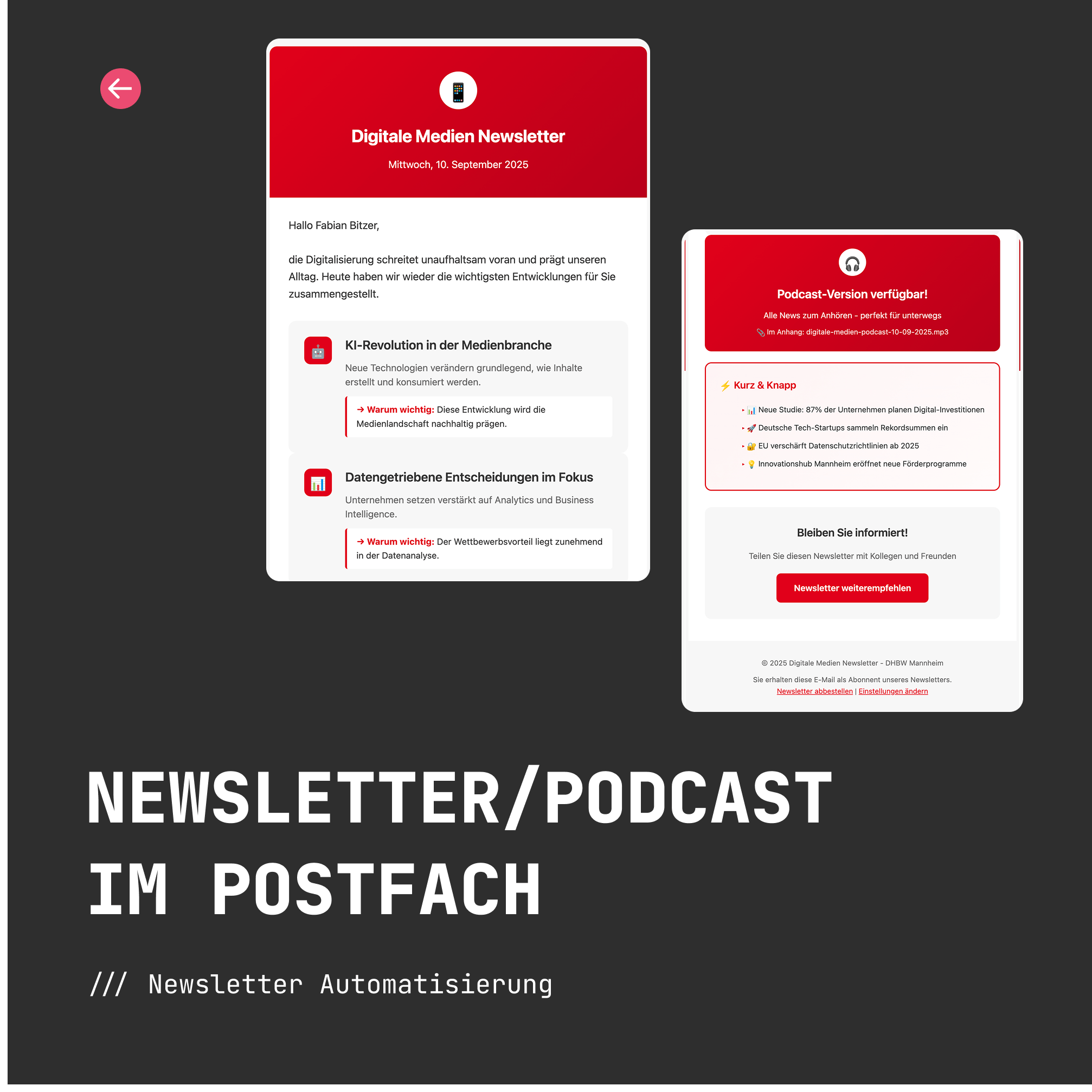AI Newsletter Automation
Workflow Automation

Starting Point & Challenge
As part of our media project in the fourth semester at DHBW Mannheim under the guidance of Prof. Dr. Gerald Lembke, our four-member team faced a challenge that perfectly reflects the 21st century megatrend of "knowledge culture": The sheer flood of information in the tech sector makes it nearly impossible to keep track.
Hundreds of relevant articles appear daily on TechCrunch, The Verge, Reddit, and countless other platforms. Our survey of 23 students from the MMK and MPG programs impressively confirmed the problem: 80% of respondents wanted a time-saving solution to stay up-to-date, preferably in short 1 to 5-minute chunks that can compete with social media content.
The solution had to be completely automated, function daily without manual effort, and still deliver high-quality, relevant content.
Approach & Implementation
Together with my team, consisting of Rion Weyler (newsletter text creation), Christopher Hill (email delivery), Emma Herwig (podcast development), and me as technical lead for scraping and workflow integration, we developed a comprehensive n8n workflow that works like a digital editor-in-chief.
The technical core of the system is based on a five-phase architecture: First, the workflow collects content daily from TechCrunch, The Verge, and Ars Technica via RSS feeds, as well as from the subreddit r/technology via a self-developed API integration. A sophisticated scoring system evaluates each of the average 50 to 80 collected articles based on weighted keywords.

After intensive evaluation of various AI models, we chose Google Gemini 2.5 Flash. This model convinced us with four key factors: It's among the top 3 models worldwide, offers lightning-fast response times for our time-critical workflow, works very cost-effectively, and reliably delivers clean JSON format.
Parallel to newsletter creation, we developed an innovative two-stage process for podcast generation: The AI first creates a dialogue-based script, which is then converted into a fluent monologue and transformed into a natural-sounding audio file using OpenAI's tts-1-hd model.

Result & Impact
The live demonstration during our final presentation on September 11 before the MMK23 course and lecturer Karsten Franz impressively proved the system's functionality. The newsletter now reaches over 200 subscribers from our program and beyond.
The numbers speak clearly: Over 95% of surveyed students preferred our compact 1 to 5-minute format, 60% showed active interest in the podcast version, and the integration of both formats was highlighted as particularly valuable.
What previously would have meant at least two to three hours of daily research work now runs fully automatically every morning at 6 AM sharp. The visual workflow in n8n comprises over 20 interconnected automation steps, from data aggregation through AI-powered text generation to personalized email delivery with dynamic name integration.
Technology & Outlook
Technology Stack: n8n · Google Gemini 2.5 Flash · OpenAI TTS (tts-1-hd) · Reddit API · RSS Parser · Python · Node.js · HTML/CSS · SMTP Mail Service
The scientific classification shows that our project addresses current trends in AI-powered journalism. In accordance with the EU AI Regulation, we have always emphasized transparency and clearly communicated AI usage.
For the future, we plan exciting expansions: After final coordination with DHBW stakeholders, complete personalization will be implemented, allowing students to choose their topic preferences themselves. Integration of WhatsApp Business as an additional delivery channel, local information such as cafeteria menus or event announcements, and interactive feedback elements are also on our roadmap.
Special thanks go to Prof. Dr. Gerald Lembke for the project idea and continuous support, Karsten Franz for valuable feedback on project organization and API orchestration, and my great team: Rion Weyler, Christopher Hill, and Emma Herwig, without whom this ambitious project would not have been possible.

